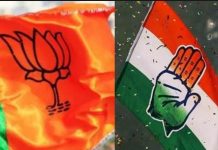
Directors: Anurag Kashyap, Dibakar Banerjee, Zoya Akhtar, Karan Johar
Starring: Saqib Saleem, Nawazuddin Siddiqui, Rani Mukerji & Others
FOR A film named after a studio that launched the careers of some of Indian cinema’s finest actors, it is a little strange to see Bombay Talkies be marketed with its four directors front and centre. In an industry where the term ‘auteur’ hasn’t been bandied about sin ce the days of Ray and Ghatak, an anthology of four shorts celebr at ing a century of celluloid is a great platform for the storytelling skills of some of our best directors today.
A 30-minute film is a unique challenge, as it forces you to strike a balance between condensing your story significantly and sustaining the audience’s atten – tion for a duration that is longer than what most people think. It is a challenge that should bring out the best in a storyteller, a challenge that the four directors — Karan Johar, Dibakar Banerjee, Zoya Akhtar and Anurag Kashyap — approach in their unique ways.
Johar’s film has received the greatest plaudits from critics, likely because he was the one least expected to present a coherent film within the constraints of the format. With his tale of a married man being forced to wrestle with his sexuality, he does exceed expectations, but too often resorts to the obvious, or to overt hints. “You want to come out?” Saqib Saleem’s openly gay character actually asks Randeep Hooda at one point. Not out of the closet, but to go listen to a beggar girl who performs extraordinary renditions of classic Bollywood songs, a mutual passion of the two. Unfortunately, while Johar’s portrayal of the passion between them is sensitive, the ending feels abrupt. Perhaps the subject could’ve been much better handled as a feature film.
Banerjee’s adaptation of Satyajit Ray’s short story Patol Babu Film Star, on the other hand, is a triumph in short filmmaking. Even though this film relies more than the others on exposition, by setting it on an empty set, with a dialogue between Nawazuddin Siddiqui and his father’s ghost (Sadashiv Amrapurkar), who appears from a dustbin, Banerjee deftly allows the surreality of the scene to make up for it. The climactic scene, where Siddiqui comes home to tell his ailing daughter the story of his fleeting moment of fame, is wonderfully captured by drowning out the dialogue with flute music and allowing Siddiqui to use his phenomenal talent to mime his tale. That one scene, with the delighted expression on wife and daughter’s face, perfectly sums up the magic of cinema that all four shorts set out to capture.
After the interval comes the inevitable decline. Sheila Ki Jawani, Akhtar’s contribution, is the weakest of the four films, never really building on Naman Jain’s extraordinary performance as the child who wants to chase his dream of being a dancer, rather than the dreams his father forces on him. Katr ina Kaif as a variation of the Blue Fairy in Pinocchio is never convincing, and combined with Ranvir Shorey’s hammy performance as the father, reduces the film to a simplistic climb-ev’ry-mountain message.
Kashyap’s Murabba, meanwhile, is an indulgent exe rcise in heartland-chic of the sort that polarised opinions on Gangs of Wasseypur (GoW). The premise — an Allahabad boy’s attempts at getting Amitabh Bach chan to eat half a murabba to honour the wishes of his dying father — is the kind of pitch that brings a smile to your face when you first hear it, but the execution evokes the same questions and frustrations that mar red the latter stages of GoW.
Members of the film industry will gladly tell you that it isn’t perfect. Bombay Talkies, similarly, is awash in imperfections, but is a loving tribute to the world its makers inhabit.
ajachi@tehelka.com












